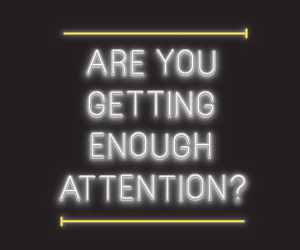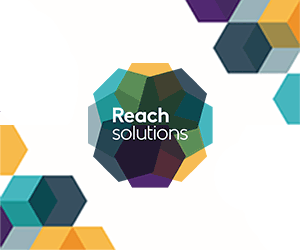 With more and more money being invested in digital marketing, it’s lamentable that it has now becoming a commoditized service. But it doesn’t have to be this way, writes John Ring.
With more and more money being invested in digital marketing, it’s lamentable that it has now becoming a commoditized service. But it doesn’t have to be this way, writes John Ring.
John Ring is managing director at Tinderpoint.
An English colleague of mine working in Ireland for the last year made an observation recently that got me thinking. His opinion was that in Ireland, digital marketing is viewed as just a commodity that ‘everyone’ can do whereas in the UK, it’s deemed to be sufficiently important to be viewed as a valued partnership between client and digital agency. A few recent examples from the trenches would seem to bear this out.
Some time ago, a prospective client asked us to effectively white label an international digital marketing campaign for an experienced marketing professional. Her end-client needed lots of search, social media, and content marketing in the healthcare space and the marketing professional was to be the sole point of contact, which was something we had an issue with due to lots of painful experience with ‘gatekeepers’.
The client sector was a difficult and very sensitive one where considerable time was needed to understand the specifics of the solution being offered so as to be able to communicate the benefits clearly in different languages to very anxious and emotional lay people. If an agency isn’t able to answer questions properly on social media due to a lack of direct communication with the end client, how are they supposed to provide for eg, community management services that they can stand over?
A Box Ticking Exercise?
Would a creative director be able to produce outstanding work if they couldn’t talk directly to the end client or be able to unearth nuggets of information through direct conversation? I highly doubt it, so why is digital marketing viewed so differently here? Is it because ‘doing digital’ is just a lazy box-ticking exercise for many marketing people and traditional agencies / marketing consultants think there’s a few easy quid in it?
Along similar lines of thinking, the pitch process hurts my perhaps overly logical head and here’s why:
We get sent a one or two-page brief. Based on that, we’re usually asked to come up with a plan and costs for an annual digital budget from €200K upwards. Are Irish marketing directors really so busy that they can’t afford to take an extra day to meet three or four digital agencies for a one-on-one briefing / Q&A session in advance of a formal pitch meeting? Can they not see the benefits an agency could bring rather than having to guess or assume multiple answers to questions best discussed in a short hour-long, pre-pitch chat?
I’ve no idea if this is common with creative/media buying pitches but it’s incredibly common with digital pitches. A recent two-pager briefing document from an energy company had a requirement for “extensive PPC” as the first item required on its list so obviously we allocated time in the pitch meeting and budget to this line item as instructed. It turned out they didn’t think this tactic was for them at all. What?!?
A while back we won a large corporate client with a UK head office. Their process was as follows:
They contacted 16 agencies to ask them if they wanted to tender. Six said yes. Tender was sent and six detailed responses received. We won and they gave us a small project – clearly defined – to test us. They were happy and so proceeded with all the remaining work outlined in the tender. There’s a fast and a slow way to pick a digital agency. With budgets of €100K to €1m involved, I still need to go and make a cup of tea to calm down every time we’re asked to go into a cold one-hour pitch meeting based on a one-page briefing document.
I’m an electronic engineer by training and a major flaw I have is to over-complicate things and think through the details too much. After “denial” generally comes “acceptance”, I understand. It’s something I’m working on…But is digital complicated or do guys like me just make it sound that way?
What Does Success Look Like?
Despite spending twenty years trying to simplify it for people with no jargon, smart people from traditional marketing and advertising backgrounds seem to think that because they’ve done a digital marketing course, they’re able to talk / (spoof?) at length on the topic with potential clients who have large digital budgets. (€600K+/year on digital is my definition of “large” in an Irish context). Here’s a challenge if you consider yourself knowledgeable about digital:
You’re approached by a large B2B Oracle consultancy (“Gold Oracle Partner” etc.) and asked to generate organic leads from Google for them across EMEA from blue chip companies. To do this, they need you to attract 500+ inbound links to their website from other good quality sites in order to rank well on Google internationally. (Google PPC ads are not an option due to low search volumes).
Is this a commodity service? If yes, what timeframe can it be done in, what does success look like, and what does the monthly progress report look like? If you have an SEO colleague or partner, go and ask them these questions and how they would approach it. Can they do a good job with no direct contact with the client for content creation reasons? I hope after your discussion, you’ll see why one simple strand of digital marketing – SEO – is unlike any traditional marketing or advertising campaign you’ve done successfully.
So is digital marketing destined to always be viewed as a commodity in Ireland? Every one-man band offering digital marketing services thinks he can do a better job for less than the next guy – which is undoubtedly driving the commoditisation perception that exists. FMCG brands are likely to give their big budgets to bigger agencies and that’s fine. The bigger agencies get, the greater the risk of complacency setting in. That’s just human nature unless there’s an extremely hungry person at the helm and commercial hunger usually dissipates with age which leaves a lot of scope for specialist digital agencies to do a great job and keep their clients happy by showing an excellent ROI.
If you’re a marketing director and you need a specialist piece of digital work done, you’re unlikely to view it as a commodity. Running bog-standard banner ads on the Irish Times as part of your media schedule is absolutely a commodity but when all those people you’ve spent tens of thousands attracting to the website arrive, do they do what the client wants? (ie. buy, register, etc.).
The Fragmentation of Digital
Do you know how many heat mapping experts – the people who tell you what’s not working and how to fix it – there are in Ireland? Two that I know of (and I’m good at finding specialists). Neither works in a large or medium agency. That tells me there’s huge scope for specialist agencies who are the direct opposites of “commodity services”.
The fragmentation of the digital marketing landscape means there’s a lot of scope for digital providers to improve their services. Who knows, maybe in the future, more Irish marketing directors might even have brief “get to know you” sessions before getting an agency in for a one-hour freezing cold pitch. Fingers crossed.
First published in Irish Marketing Journal (IMJ July/August 2017)© to order back issues please call 016611660






















